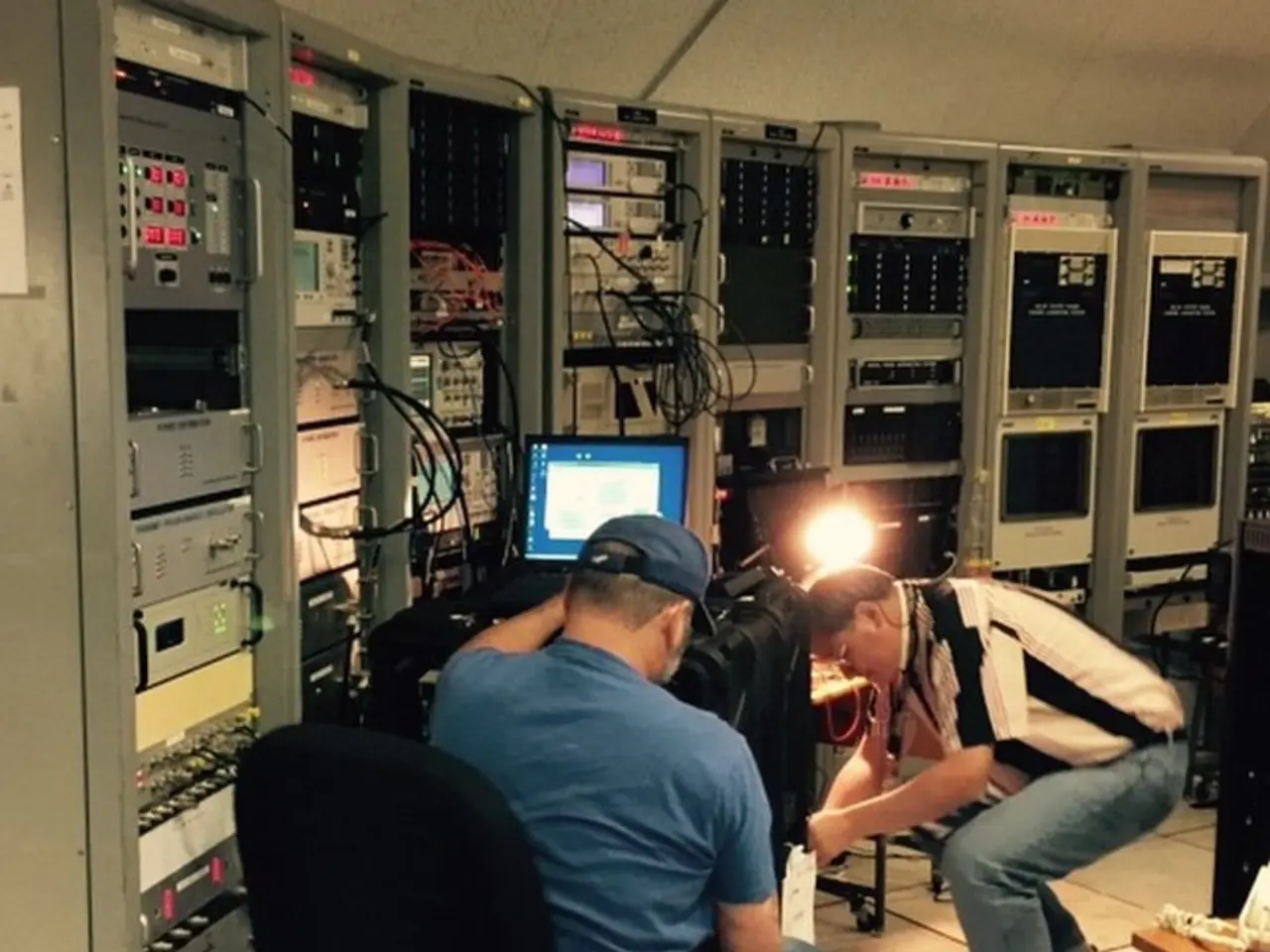Trump advocates for bringing South Korean battery specialists to educate American labor force
In the realm of electric vehicle (EV) production and battery technology, the United States government, particularly under President Joe Biden, is making concerted efforts to boost production and innovation. South Korea, on the other hand, is a leading battery manufacturer, with companies like LG Energy Solution, SK Innovation, and Samsung SDI making significant investments in US production facilities and collaborative projects with American automakers.
Regularly, South Korean specialists are dispatched to American sites to support the setup of production facilities, technology transfer, and the training of local workforces. However, this practice is usually part of commercial and industrial partnerships, not as a result of an explicit political proposal from a specific individual.
In a notable shift, Donald Trump, during his presidency, expressed his intention to bring Korean battery experts to train US workers. Trump noted the need for exchange of personnel due to a lack of skilled personnel in various industries and promised to ensure swift and legal import of talents, while requiring companies to hire and train American workers.
Trump's proposal was not just a single initiative but part of a broader industrial policy and international cooperation. As of December 2023, there is no prominent documented proposal or public declaration from an individual advocating specifically for the recruitment of South Korean battery experts in the US for the purpose of training American workers.
Despite Trump's proposal, the practice of bringing in foreign specialists, training them, and having them stay for a certain period can help cultivate personnel. The U.S. allocates annual professional visa quotas by country to five Free Trade Agreement (FTA) partners, but South Korea has no quota and must apply for the H-1B visa, which is subject to a random lottery system, limiting South Korea to approximately 2,000 visas per year.
Trump's proposal faced difficulties due to the "America First" atmosphere, and a bill proposed by Republican Congressman Young Kim aiming to establish up to 15,000 E-4 professional employment visas for foreigners also encountered challenges.
In the practical implementation, Trump's proposal seemed to have been put on hold under the Trump administration's aggressive anti-immigration policies, with numerous companies dispatched employees from Korea through the Electronic System for Travel Authorization (ESTA) or the short-term business (B-1) non-immigrant visa, but these practices were halted.
Trump's proposal, however, was not unique. Many US companies in Georgia, Tennessee, and Kentucky have struggled to hire skilled personnel due to their locations and the hollowing out of key industries. Over 300 Koreans were detained in a raid on the Hyundai Motor·LG Energy Solution joint battery factory in Georgia, USA, highlighting the challenges faced by foreign workers in the US.
In response, Trump, on Truth Social, urged foreign companies investing in the US to respect immigration laws. Trump wrote that he welcomes investments and encourages the legal import of highly intelligent talents with excellent technical skills.
In conclusion, Trump's proposal to bring Korean battery experts to train US workers was a significant shift in the discourse on immigration and workforce development. While the proposal faced challenges, it underscores the need for cooperation and collaboration between countries in addressing the global skills gap in key industries.
Read also:
- Indian Oil Corporation's Panipat Refinery secures India's inaugural ISCC CORSIA accreditation for Sustainable Aviation Fuel production
- Ford Bets on an Affordable Electric Pickup Revolution with a $30,000 Design
- Rapid Charging Stations for Electric Vehicles Avoiding Grid Overload
- TikTok's Artificial Intelligence Regulation Approach Meets Stiff Opposition from German Trade Union







